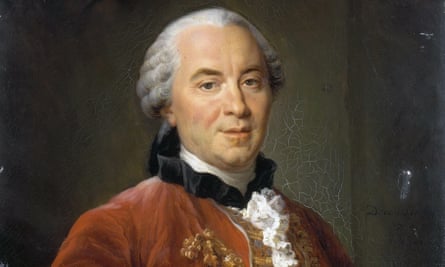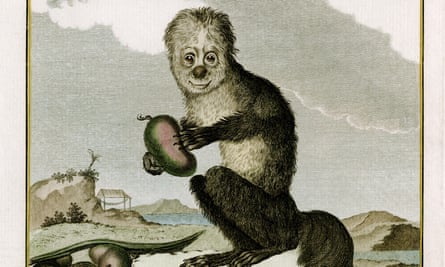The French aristocrat who understood evolution 100 years prior to Darwin – and even timid about climate alternate – Guardian
Presently after Charles Darwin published his magnum opus, The Starting up of Species, in 1859 he started reading a minute of-known 100-year-extinct work by a nicely off French aristocrat.
Its contents had been reasonably a shock. “Complete pages [of his book] are laughably love mine,” Darwin wrote to a buddy. “It’s fine how candid it makes one to request one’s see in a single other man’s words.”
In later editions of The Starting up of Species, Darwin acknowledged Georges-Louis Leclerc, Comte de Buffon, as one among the “few” participants that had understood that species alternate and evolve, prior to Darwin himself.
Now a brand contemporary guide will strive to shine a gentle on the French naturalist’s unprecedented achievements and groundbreaking suggestions, which date support to the 1740s. “Buffon used to be one among the very first participants to postulate the alternate of species over time,” mentioned Jason Roberts, creator of a brand contemporary guide, Every Residing Thing, which will seemingly be published subsequent week, on 11 April. “He did now now not name it evolution – that be conscious used to be coined later – but he used to be one among the predominant participants to chat about it and counsel there used to be some extra or less draw.”
In Histoire Naturelle, a 36-volume guide Buffon worked on for 50 years, he furthermore recommend the premise that animals had been changing into extinct at a time when most natural historians believed that “God would never permit any species to ever proceed or arise over time”, essentially based totally totally on Roberts. “The concept that of species alternate and extinction used to be very controversial.”

Equally, Buffon’s observations about reproduction anticipated the discovery of DNA: “He urged there had to be some extra or less internal shaping mechanism – that existence exists on an organic mobile level and there need to be some extra or less recipe or ‘internal mold’ that reproduction follows, to assemble the building blocks of cells correct into a say extra or less organism.”
After inheriting a fortune from a much-off relative, equal to about £28m at the present time, Buffon aged some of his wealth to turn a 100-acre park he owned in Burgundy into an “environmental laboratory”, where he “let issues jog wild after which seen what took place”, Roberts mentioned.
“He has if truth be told been described as the realm’s first ecologist, because he used to be the predominant particular person to undoubtedly peep a species in its have ambiance, and now now not fine a specimen of a ineffective organism.”
Buffon seen all the pieces that took place in his park, from the breeding habits of the foxes to the patterns of the birds and the trees they selected to nest in. “He used to be the predominant scientist to peep existence in its context and assemble dwell contextual observations,” mentioned Roberts. “He would pay enormous quantities of cash for specimens of dwell animals so he may per chance per chance also request them and have interaction with them.”

As an different of evolution, Buffon aged the term “degeneration” to discuss with a natural course of “outside the in vogue reproductive course of” that triggered alternate to a species. The term did now now not include damaging connotations at the time.
However Buffon never realized how this species alternate if truth be told took region: it took Darwin, and his belief of natural need, to shed gentle on the system.
Even with out this key insight, Buffon postulated that contemporary species need to include procedure into existence and changed over time, whereas some species need to include long previous extinct. “That used to be a truly, very radical thought at the time, and Buffon used to be censured for it by the Sorbonne: he had to write down a assertion publicly renouncing all the pieces he had written,” mentioned Roberts. Buffon used to be later formally accused of heresy for implying that Earth used to be older than the biblical tale.
after newsletter promotion
“Buffon suspected it used to be a subject of millions, if now now not billions, of years,” mentioned Roberts. “He pioneered the premise of time on a geological scale.”
Not like his up-to-the-minute Carl Linnaeus, who believed that nature used to be static and each species had stayed exactly as God created them, Buffon believed nature used to be too advanced and wretched to be with out trouble labeled.
He used to be even pondering in regards to the influence of human-caused climate alternate. “Buffon had enemies, because his message – that nature can now now not be conquered, that humans had been, in actual fact, fragment of nature – used to be undoubtedly disconcerting to other participants.”
Roberts mentioned he speedy realised that the realm wasn’t receptive to his suggestions. “He would assemble a assertion love: ‘For species to alternate, one need to imagine that the earth is millions of years extinct’, hoping that one day participants may per chance per chance be ready to hear that. However then he would need to add a sentence: ‘However needless to claim, that’s ridiculous hypothesis. The Bible tells us in any other case.’”
Since Buffon had to ascertain undermining his have observations, it used to be easy for Victorian naturalists to push apart his contributions, suggesting – as Darwin did – that Buffon’s opinions “fluctuated a good deal”
Roberts hopes his guide will support to reassert Buffon’s rightful region in ancient previous: “The outrage that greeted Darwin in 1859 is nicely known,” he mentioned. “Imagine if those suggestions had been asserted in 1759.”


